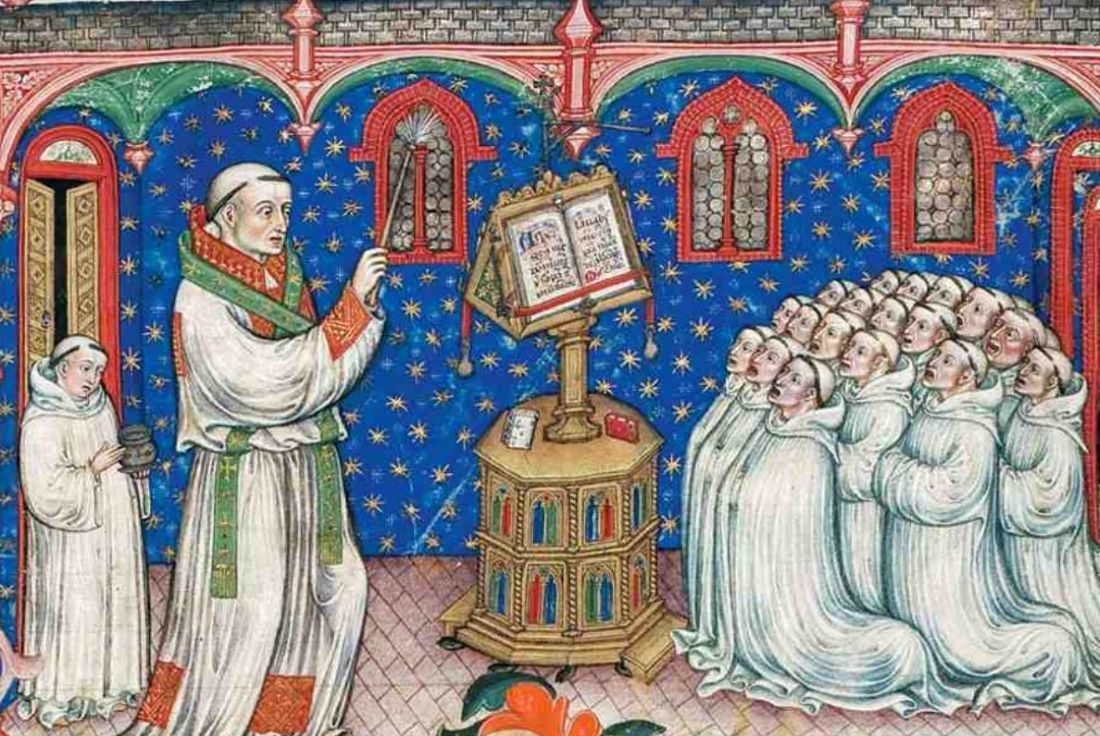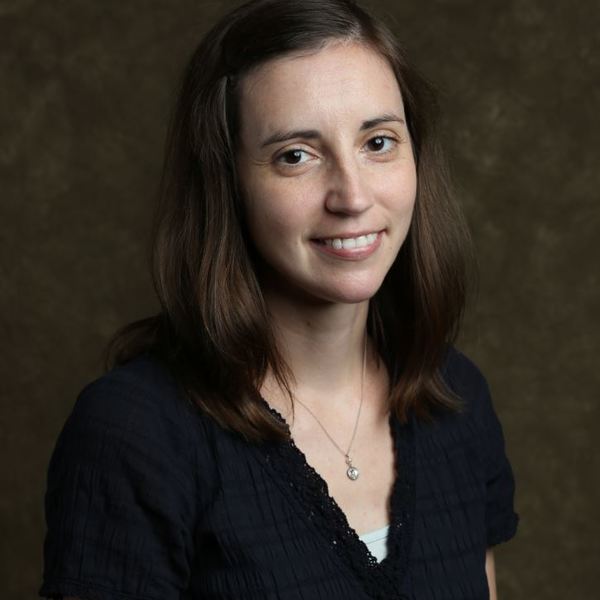At this point, the story of COVID-19 and U.S. higher education is one well-told but with no obvious ending. Administrators have made grim financial cutbacks, professors have worked overtime to find elusive online substitutes for offline pedagogical approaches, staff have lost their jobs, students have struggled with internet access and noisy younger siblings. No one really knows yet how education will proceed in the fall semester. This moment is pivotal, yet insights regarding what this means for Catholic colleges and universities remain tenuous and even obscure. So much seems beyond our control.
Confronted with such formidable uncertainties and questions, we might do well to pause briefly from our discussions of inflection points and online learning to reconsider the question of mission. Prior to my arrival at the Benedictine institution of Saint Vincent College in Latrobe, Pennsylvania, I had thought about the meaning and value of a Catholic, liberal arts education. The cultivation of the whole person, the encounter with a broad range of human questions and distinctive thought worlds, the focus on providing a foundation for students to become ethical persons in service of others. These ideas continue to represent significant markers of our deeper purposes at a time when more pragmatic concerns often dominate. Once I began teaching at Saint Vincent, I found that the expression of these values in a Benedictine key has enriched my understanding of Catholic education, no more so than in this strange time when the ineffable power of a classroom community has been entirely replaced by video lectures, discussion boards, and the often-awkward online seminar.
The first word of the Rule of Saint Benedict, the sixth century guide to monasticism that undergirds life at a Benedictine college, is “Listen!” (RB Pro. 1).[1] This exhortation encapsulates much of what I try to achieve with my students in the classroom. This “Listen!,” for Saint Benedict, is the doorway to a meaningful and authentic human life with God. It is a demanding “Listen!,” one that implies a silent attentiveness, a “Listen!” that makes claims on the way we enter the world.
This “Listen!” is perhaps most strikingly captured in the Benedictine concept and practice of hospitality, one of the Ten Hallmarks of Benedictine Education. We often think of hospitality in a way that conjures pleasant images in our minds of safe spaces open to beloved family and friends. The warm fire, the open doorway, the table overfilled with homecooked and cherished foods. Anyone familiar with the home-finding, home-renovating, and home-decorating reality shows so prevalent on television knows that contemporary American homeowners often speak of their desire for “open-floor plans” so that they can “entertain,” that is, unlock their doors to those they love, feed them, charm them, make them feel comfortable. We think of hospitality in images of security and contentment.
These images might represent laudable experiences of family and friendship, but they are insufficient inspirations at a time when we, by necessity, must keep our homes to ourselves. Fortunately, hospitality in the Benedictine tradition reaches towards something far more radical and much less comfortable. Writing on Benedictine hospitality, Kathleen Norris points to chapter 53 of the Rule, which treats the “Reception of Guests” at a monastery. It begins with the statement that “All guests who present themselves are to be welcomed as Christ” (RB 53:1). As Norris writes, this directive leaves “no wriggle room, no way out, no chance to respond to a visitor’s demands by saying, in an exasperated tone, ‘Can’t you see we’re trying to run a monastery here?’”[2] In other words, Saint Benedict’s injunction asks us out of our own treasured organization of time, our own circle of well-known friends and ideas. He asks us to open the door, even when we may be afraid of what is on the other side, even when it is entirely unknown to us. At a time when we must keep our literal doors shut, Benedict reminds us to keep the doors to our hearts open even though it can be dangerous.
The Benedictine hospitality that entails openness to the unexpected, the surprising, is theologically grounded in the always unexpected and often surprising mystery that is God. Demetrius Dumm, O.S.B., a biblical scholar and monk of Saint Vincent Archabbey, writes that the call for a “spirit of openness to divine mystery” permeates the Rule of Saint Benedict and that “the entertainment of divine mystery brings with it a corresponding openness to human mystery.”[3] Dumm extends this concept of hospitable openness even further to the beautiful mysteries of the created world.[4] He offers the example of Abraham’s eager and enthusiastic welcome to three strangers who approach him by the oaks of Mamre (Gen 18:1-15). This story follows several chapters of God making promises to Abraham (of land and descendants) and seemingly not following up on those promises.
For Dumm, this episode of Abraham’s hospitality points beyond the act of feeding as such to Abraham’s dogged faith in the goodness of “the unexpected and the unplanned” despite the seeming reality that God has forgotten him.[5] God reveals God’s self to Abraham through these strangers when they reiterate God’s promise of a son and confirm it will happen within the year. Abraham finds God in the strangers for whom he changed his plans, for whom he opened a space.[6] Mysteries demand that we likewise relinquish control and make room for strangers, whether those strangers be a transcendent God, an ancient text, a puzzling idea, another human person, or the wonders of creation. Mysteries demand that we acknowledge our vulnerabilities before that which we do not know.
There are many ways to cultivate this “Listen!,” this openness to mystery, in the classrooms of Catholic higher education. The exigencies of online instruction no doubt complicate this task, particularly given the well-intentioned but hasty scramble that characterized so many of our efforts to educate in a world shaken by COVID-19. I will reflect on one of my classroom practices that I believe expresses Benedictine hospitality in some small way and depends, in large part, on the being-together the physical classroom affords. This practice has two parts organized according to two related but distinct pathways into the heart of this “Listen!”.[7]
First, I read a biblical psalm aloud at the beginning of class. The Psalter is comprised of one hundred and fifty prayer-poems written over the course of hundreds of years by the ancient community of Israel. The psalms play a major role in the Rule of Saint Benedict and, indeed, in the continuing life of the monastic tradition that guides those at Benedictine colleges. The psalms are magnificent poetic texts that have endured as literary works and lived prayers over the course of thousands of years. The psalms are Israel’s words to God, and ancient Israel spoke to God about everything. The psalmists speak about the experience of sickness, of violence, of joy in creation, of uncertainty about the future, of loneliness, of friendship, of God’s absence and God’s presence.
Yet, most students have limited encounters with the psalms, and any familiarity they have is often focused on one or two favorite phrases. It is easy to love “The Lord is my shepherd” (Psalm 23:1) or “The Lord is my light and my salvation” (Psalm 27:1). But the psalms are more often strange texts. They can be impenetrable and even off-putting to undergraduates unfamiliar with the language of ancient poetry. These biblical poets often seem trapped in their own paranoia, obsessed with perceived enemies and calling for the most extreme kinds of violence against those who cause them trouble (e.g. Psalms 69, 137). The psalms rarely mention women, and they often mention kingship in a way that sounds far removed from our own ideas about national governance. The psalmists use imagery not drawn from the world we typically experience: royal courts, thunderous mountains, perilous deserts, mythological sea creatures, the Temple of Solomon.
These texts thus offer our learning community a moment of encounter with that which is unexpected, strange. By reading an ancient song-poem at the beginning of class, I am asking my students to join me in opening the door to what is “other” even if it is uncomfortable, or unwelcome.
In the classroom, we follow the reading of the psalm with a period of silence, usually about one minute long and sometimes longer, before we begin with our work for the day. My hope is that this short period of quiet provides the space for students to simply “Listen!,” that is, to meet the stranger and recognize its strangeness. Rowan Williams writes that experiences of silence “challenge our urge to get on top of situations, to control” and that, because of this, moments of silence “are so very important not only for our humanity generally but for our Christian humanity in particular.”[8] The reason, he continues, is that the experience of silence is “a recognition of something that all human beings, powerful and powerless, sooner or later share—being up against what can’t be mastered and managed.”[9]
In a time when cultural forces offer college students the narrative that they can control their future if they take certain classes, obtain certain scores, do the right internships, meet the right people, learn only certain things, take all the right steps educationally and personally, this moment of silence points toward that which lies beyond our control, toward what is unmanageable. It signals a realization that rampant viruses also expose, namely that our grip on life’s passage is not nearly as secure as we assume. There is no doubt that our students, and not wrongly, see college as a means to managing their future, but so too should this education point toward a more fundamental human reality, namely that futures cannot ultimately be mastered, that meaning lies beyond our control in the hands of a loving yet silent Creator.
Does this contemplative classroom practice lead our learning community to deeper listening and more hospitable attitudes towards other students, ourselves, and the ancient biblical writers who proclaimed and recorded their experience of God? As we experience the collective loss of control wrought by the deadly caprices of a pandemic, will we simply grasp for that control we never really possessed by doing and overdoing, welcoming the distractions that online life so readily offers, scattering our attention to the winds of the almighty screen? I have found such questions difficult to answer. This is something beyond my capacity to master or manage.
This is what I hope this small practice does, and how I hope the Benedictine character of our mission at Saint Vincent College might manifest in the lives of our dispersed learning community. I hope it makes us a bit more eager to be curious, to enter the experience of another without fear or judgment. That it begins to break down the divides between those of differing backgrounds, interest levels, religious commitments, and academic abilities. I hope that it makes our classroom community a bit more enthusiastic to read ancient authors inquisitively, and to fall in love with texts that are strange and even at odds with the attitudes and worldviews that have become habitual for us. A little bit more willing to reckon with an idea, thought, or position that is new or different or unmanageable. I hope that it leads us to embrace the uncomfortable silences of social distancing and isolation, to recognize there the silences of those who have lost their jobs, are suffering alone in hospitals, or weeping the untimely loss of a beloved friend. I hope it makes us a bit more likely to step into the mysteries embedded in human life and find something beautiful there.
I cannot wait to see my students in person again, to read aloud with them the words of the ancients, and to be silent together as we listen for the strange sound of the dangerous, and perhaps loving, unknown.[10]
[1] All quotations taken from RB 1980: The Rule of Saint Benedict in English, ed. Timothy Fry, O.S.B. (Collegeville, MN: Liturgical Press, 1981).
[2] Kathleen Norris, “Hospitality,” in The Benedictine Handbook (Collegeville, MN: Liturgical Press, 2003), 126.
[3] Demetrius Dumm, O.S.B., “Benedictine Hospitality,” Benedictines 35 no. 2 (Fall-Winter 1980): 69, 71. I am indebted to my colleague, Patricia Sharbaugh, who originally found this article and writes about the experience in her book Irrepressible Light: The Women of the New Testament (New York: Paulist Press, 2019), 76-78.
[4] Ibid., 73.
[5] Ibid., 65.
[6] Ibid., 65.
[7] I am indebted, once again, to my colleague Patricia Sharbaugh, who first suggested this practice to me.
[8] Rowan Williams, “Silence in the Face of Mystery: God is the Encounter We Can’t Control,” Christian Century (August 21, 2018): 28.
[9] Ibid., 29.
[10] This essay was adapted from a presentation given at the “Ora et Labora: SVC Conference on Our Common Mission” at Saint Vincent College in January of 2020.


